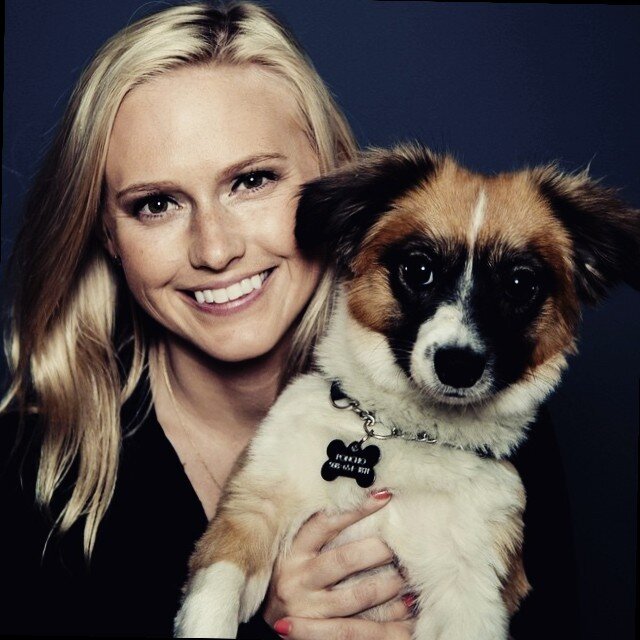How to ask for feedback
And why it is so important.

 No matter where you are in your life and your career, there will come a time where you will either ask for feedback from someone, or you will be asked to give feedback. Feedback is an amazing tool and is one of the best ways you can learn from others. Without continuous feedback, it is almost impossible to improve.
No matter where you are in your life and your career, there will come a time where you will either ask for feedback from someone, or you will be asked to give feedback. Feedback is an amazing tool and is one of the best ways you can learn from others. Without continuous feedback, it is almost impossible to improve.
Learning how to properly ask for feedback, and how to give feedback, are two huge milestones in your career. By asking for feedback, you admit you don’t always have the correct or best answer, and you open yourself up to a world of opportunities. You show people that you aren’t afraid to be wrong, and you also show yourself that it is okay to ask questions. And, by giving feedback, you help others grow personally and professionally.
Without asking for and giving feedback, how would you be able to move forward? How would you know ways you can improve for next time? Albert Einstein was attributed (although many would argue otherwise) with saying:
The definition of insanity is doing the same thing over and over again and expecting a different result.
Without feedback, we would continue doing the same thing over and over again, hoping for a better result. Continuous feedback breaks these toxic cycles.
However, this can go horribly wrong. On both sides.
Let’s start with the concept of asking for feedback…
It is wonderful when people ask for feedback. I absolutely love it. However, sometimes, the questions can miss the mark. I believe the right intent is there, but it can leave the person receiving these requests either frustrated, confused, or tired.
For example, I spoke with a few friends who get asked feedback frequently for portfolios, resumes, jobs, etc. Both of the below scenarios are, of course, exaggerated to get the point across, but they are still representative. Here are three examples:
**I do understand we are in a time where people may really need jobs, and we are emotionally exhausted. So if you receive a message such as the below, be kind and try to explain that you simply need more information to give the best feedback/do the best networking possible
Example 1 (networking):
- Person: “Hey, can you help me find a job?”
- Feedback giver: “Hey, let’s see if I can help. Can you tell me more?”
- Person: “I’d like a job in user research.”
- Feedback giver: “Okay…where are you looking for a job.
- Person: “Anywhere, I can work remotely or move.”
- Feedback giver: “okay…where are you currently located?”
- Person: “Boston.”
- Feedback giver: “And what kind of role are you looking for? What level? What type of company…”
- Person: “Anything user research related.”
Example 2 (networking):
- Person: “Hey, can you give me some feedback on my portfolio piece/resume?”
- Feedback giver: “I’d be happy to, what kind of feedback are you looking for?”
- Person: “If it is good and if it will get me a job.”
- Feedback giver: “Sure, but what is your experience level”
- Person: “Mid-level.”
- Feedback giver: “Okay, and what types of jobs are you applying to? This will help me with giving you the best feedback.”
- Person: “Mid-level user research jobs.”
- Feedback giver: “Can you give me an example of a company?”
- Person: “UK Gov.”
- Feedback giver: “Okay, and what is your biggest strength and your biggest weakness in your portfolio?”
- Person: “I don’t know.”
The thing is, we are all learning how to network and how to get through these situations. Some people have been networking for years, and some people are naturally good at it. But others are still trying to navigate the digital world of networking and asking for feedback, where we lose important indicators such as body language and tone.
Example 3 (workplace, over slack):
- Researcher: “What do you think of this research report I just put together?”
- Colleague: “It’s nice…but I am not really sure how to use it…”
- Researcher: “What do you mean, you don’t know how to use it?”
- Colleague: “Maybe it is just me, but how should I use this for roadmap or planning?”
- Researcher: “Well, it isn’t as if I can give you all the answers, but it shows the number of participants who were confused on slide 7.”
- Colleague: “Sure, I guess I’m just not sure what the next steps should be. Really, maybe it is just because I’m not used to working with a researcher!”
- Researcher: “Okay, then what can I do?”
- Colleague: “Maybe you could put the next steps or recommendations you have…”
- Researcher: “Okay, sure.”
It can be difficult to hear negative things about work we’ve put time and effort into. Sometimes the feedback will come out in kinder ways (such as above), and sometimes not. We have to learn how to take this feedback and make it as constructive as possible, to learn how to do better next time.
Some guidelines on asking for feedback:
- Think about both sides. The best advice I can give when asking for feedback is to think critically about your message. Would you like to receive it? If you received it from someone else, could you help them?
- Mean it. Don’t ask for feedback if you aren’t going to use it or are just going to defend whatever you currently have or are doing. This isn’t helpful for anyone. It is totally fine to disagree and have discussions (that is another way we learn), but don’t just ask and ignore.
- Give more context. As mentioned above, more context makes communication more clear for everyone. It also makes everyone’s job a lot easier. It is really difficult to authentically reach out to help someone find a job if you aren’t feeling motivated to do so based on the message you received.
- Try not to get defensive. As I mentioned, it can be hard to not get upset when someone doesn’t understand something you have worked on. Remember, you are all working together towards the same goal within a company. The best thing you can do is understand someone’s perspective and then decide what to do with the feedback. Maybe there is a misunderstanding and you can make things more clear, or maybe something is confusing that you can change.
- TALK to the person first. If you are connecting with someone you don’t know and asking them for feedback, create some conversation. Show them you did some research and why you want to get their feedback. Maybe they wrote an article or gave a talk you loved — let them know! Try not to just lead with asking for things.
- Give people the benefit of the doubt
Better feedback conversation examples:
I just quickly wanted to give some good examples that are similar to the ones above. These are also based on real-life experience! It just takes time to learn these skills, but it is important in advancing your career.
Example 1:
- Person: “Hey! I was wondering if you could help me with finding any opportunities. I am a mid-level user researcher located in Boston, MA (but willing to relocate or work remotely). I have worked as a researcher for 3 years, mostly at B2C companies. I am looking to move to a smaller sized company (under 500 people) and in the B2C space. I would love a role in education tech or medical tech, however, I am also happy to work in the e-commerce space (where I have more experience). I’ve attached my resume if you want more details. Please let me know if there is anything else you need from my side. Thank you!”
Example 2:
- Person: “Hi! I am currently looking for a new job in user research. I created this portfolio based on my recent work at a B2C company. I am starting to apply to some junior and mid-level roles (I’ve only been in the field for about 1 year). I am really struggling with the layout and making sure my content is engaging. I have some nice deliverables, but I’m not sure if everything makes sense when I put it together. Would you mind looking through it to see if it tells a story? And also if there is any content I am missing that you think would be applicable to a hiring manger? Thank you and let me know if there is anything else you need!”
Example 3:
- Researcher: “What do you think of the research report I sent you a few days ago?”
- Colleague: “Oh, it’s nice, but I’m not really sure how to use it…”
- Researcher: “That is such great feedback, thank you for sharing. Can you tell me more about what is confusing or missing? I’d love to make it more actionable for you, and be able to improve the next reports! Maybe we could have a meeting to discuss it?”
All of these are just simply models based on some experience I and others have had. These aren’t rules, by any means, they are simply some guidelines you can use when thinking about asking for feedback. Again, I’m not saying the first examples are wrong, but they might come off as difficult to engage with to some. Remember, you are asking favors of people when you ask for feedback. You want to make sure you come off as clear and understanding.
We all can come together and think about how our words impact each other, on both sides, and become better at communication. As the world evolves, online communication will start becoming more and more inherent in our lives. It is best to think about having a conversation online as you might in person.
Stay safe and healthy
For more engaging discussion, please sign up for the User Research Academy slack group! And check out User Research Academy for free resources.
